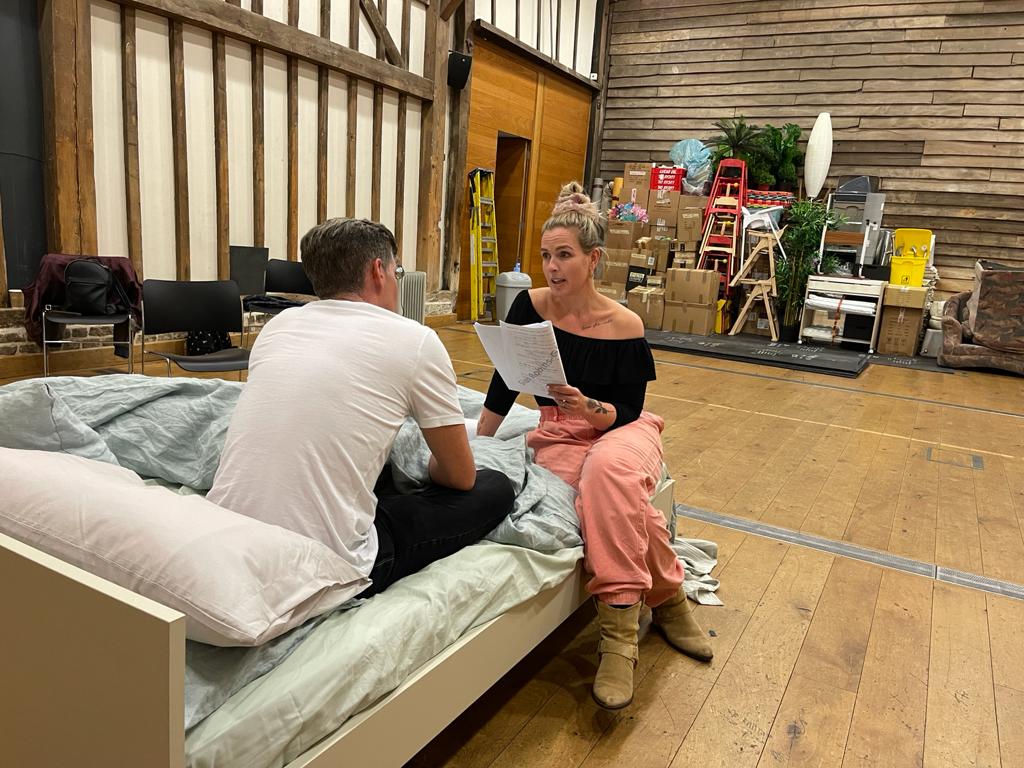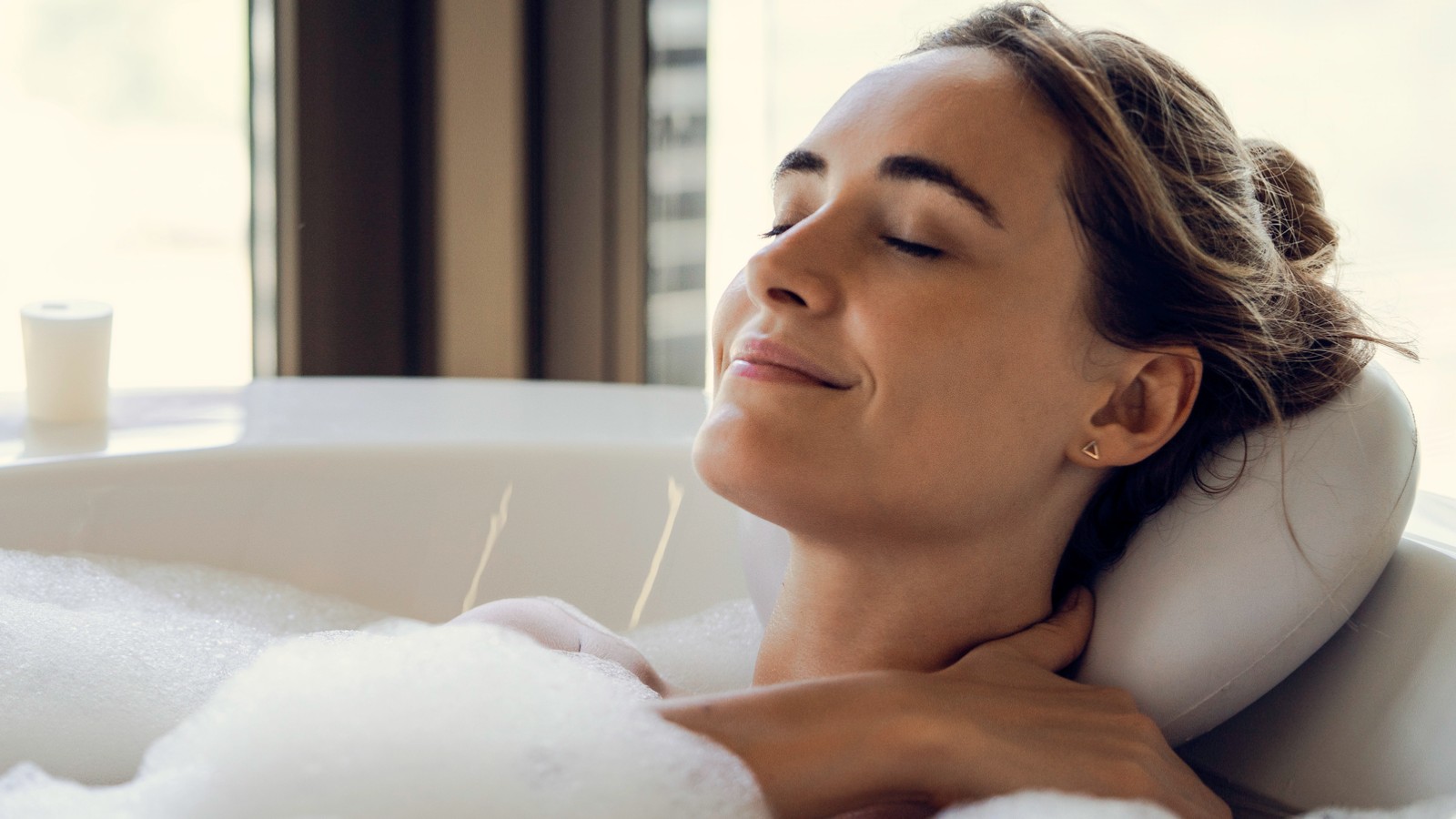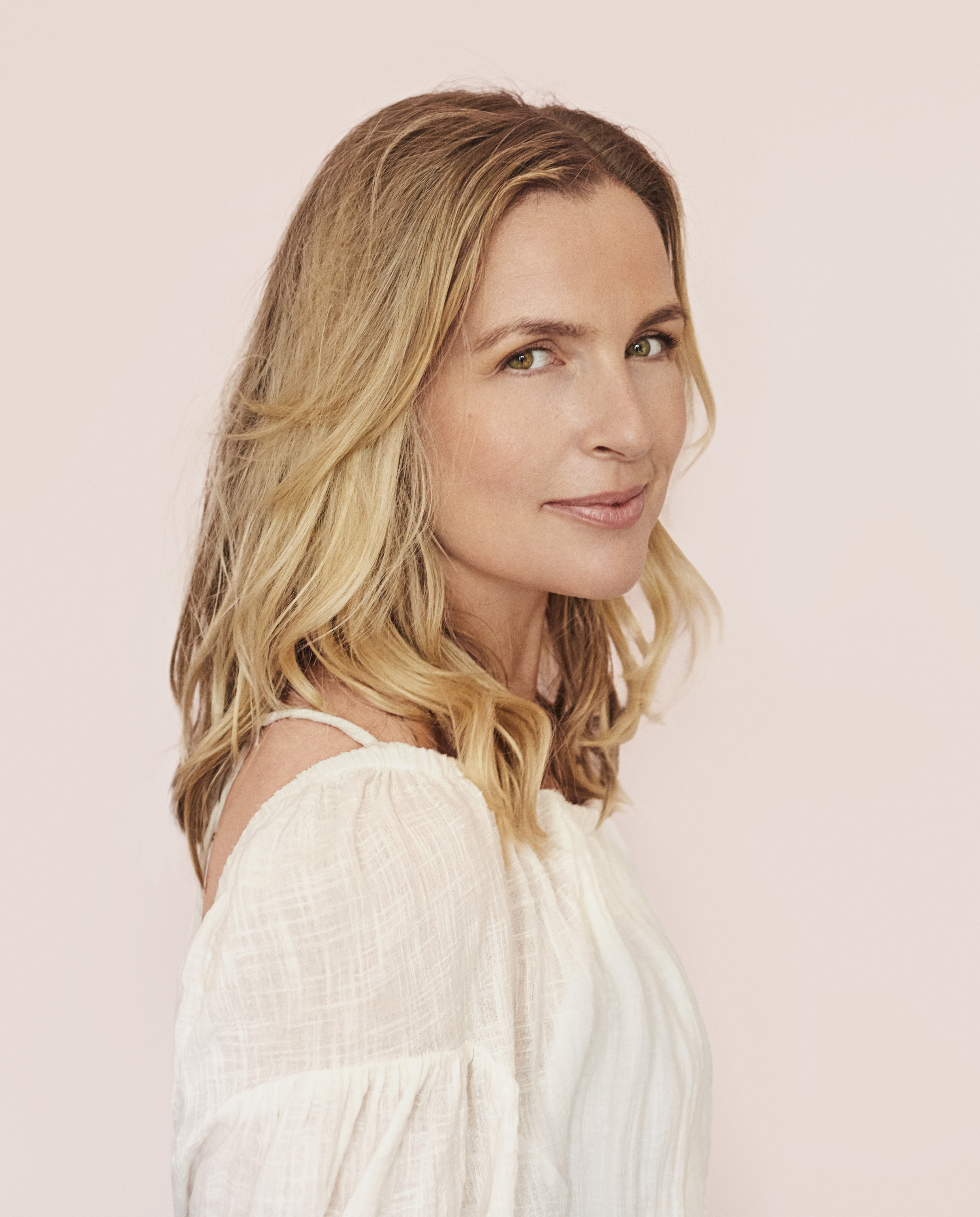An 'intimacy coordinator' reveals what she's learned about pleasure during her fascinating career and how it can help you
Intimacy coordinator Jen Odell on how to prioritize pleasure in your life day to day and what she's learned choreographing sex scenes


Intimacy coordinators are a new addition to the average film and TV set. The importance of protecting and supporting performers in scenes featuring nudity, sex, and other forms of intimacy means these professionals are now standard. Just like Jen Odell, who takes time out of her schedule to share her experience and how it can benefit you...
We are all sensual people. Our senses shape how we experience the world, they connect us to the events, places, and people around us. Sex and sensuality are not the same things, but they can flow together, overlap, and inform each other—for wonderful, sex positive experiences.
It is my firm belief that when we embrace our sensual selves, we find the most important connection of all, connection to our own pleasure.
The world we live in can be overwhelming. We can be overstimulated, over-worked, lethargic or stressed out, under-touched or over-touched. Often we forget, or we don’t know how to connect to our own pleasure.
If we create the time and space for ourselves to feel and touch and love our own bodies, we connect to our power. On the other hand, when we connect our pleasure to pleasing another person, performing or giving someone else what they need, or we shut it down because we put other demands on our energy or our time first, we only sacrifice ourselves and our own sensual potential.
What does an intimacy coordinator do?

You may also like...
How to have good sex when you're in a long-term relationship
Working as an Intimacy Coordinator, my job is to ensure scenes with nudity, sex and other forms of intimacy reach our screens safely, supporting and protecting performers and helping directors bring their ideas to life.
I help people to feel comfortable in situations that could potentially be the opposite. I help people navigate their boundaries and I help to choreograph sex and intimacy that looks real, feels authentic, and tells a story.
Sign up to our free daily email for the latest royal and entertainment news, interesting opinion, expert advice on styling and beauty trends, and no-nonsense guides to the health and wellness questions you want answered.
Our bodies hold all of our secrets, all of our joy and pain. The way actors move and breathe can tell us so much about the person they are portraying, and if we observe ourselves in the same way, we can tap into the messages our bodies are desperately trying to tell us.
Why are intimacy coordinators important?
Sometimes the sex and intimacy on our screens can be harmful—unrealistic or driven by old myths and stereotypes. The sex we are shown can infuriate us, arouse or inspire us. I hope to be part of a shift change that explores sex as a much more complex and nuanced experience, one that embraces all bodies and body types, celebrates self-pleasure, self-love, and honest, open communication.
I can’t control the content of the scenes I work on, sometimes I can feel frustrated and want to rail against the cliches, to expand and develop what has been written on the page.
At times I feel the pain an actor feels when they don’t want to expose parts of their bodies they feel self-conscious about, and though on a personal level I yearn for a more expansive range of bodies to be seen and celebrated on screen, nothing is more important to me at work than protecting and respecting the feelings and boundaries of those around me.
There are also times when I collaborate with actors and we create something beautiful and true and I watch them perform it and it’s as though the whole world stops. That feeling is hard to beat. Working on film sets can also be grueling, with long hours and high stakes.
How to savor sensuality

Sensuality to one person could be eating a soft, ripe pear alone—savoring the flavor and texture of every bite, licking the spilled juice from their fingers. For another it could be taking a bath and letting the warm water caress their skin, moving subtly around the shape of them, all the parts of them. A sensual connection can feel like a breeze moving around your face, a warm wash of sunshine, the smell of a candle, or an open fire.
It could be moving or dancing to a song that you love or masturbating with intention. Take time to touch your skin, observe yourself in the mirror, changing positions, types of touch, levels, and pressure, using toys or hands, or both.
Savoring the whole experience as a loving act of body worship, resisting any urge to rush or disconnect, to analyze or judge the form our body takes. Instead, allow yourself to be present, feeling it, being in it, breathing in it. Loving our body exactly as it exists at that moment.
Why creating time for yourself is vital when it comes to pleasure

I'm still learning how to balance my work with my life as a parent and a partner. It hasn’t been easy but I do know that when I create time for myself, I am stronger and more present for everyone. In a world where we are more exposed than ever, and exposed to more information than ever, grounding ourselves back to our bodies has never been more vital.
With busy lives, we can often live in our heads and leave our bodies behind. Thoughts and fears swirl around our heads while our bodies work on auto-pilot. The pandemic has affected many people physically, after fear and separation it has been hard for a lot of people to relax back into a world full of people. Or perhaps their personal space and touch boundaries may have completely changed without them realizing it. An issue that can lead to anxiety and discomfort in situations that were once familiar and easy, perhaps causing sexual anxiety that hadn't existed previously.
The same can happen when a person is grieving or carries trauma, or if a relationship is experiencing challenges. In my work, I help actors to navigate their feelings by encouraging them to really listen to their bodies. If they are considering what they are comfortable performing, what does their body tell them? We are rarely taught how to do this in life, and yet it’s a powerful source of truth.
How to reconnect with your sensuality

We change, with time and with the ever-changing tides of life, not just physically but emotionally—our sex drives, needs, fantasies, and desires rarely stay the same. Therefore, we should honor ourselves with time to feel those changes, embrace and nurture them, to move from a head space to a body space.
I invite you to create time and space to do this as a priority. How does your body feel today? Are you tense and closed in, or soft, open, and relaxed? How does your breath move around you, is it high and fast or slow and centered? No judgment, only noticing.
This is helpful for every situation we find ourselves in, every choice, and every space. Do I feel safe here? Is this what I want? Our bodies will always tell us what we need if we take the time to listen.
Gift your senses and our bodies generously. Put your own pleasure on the top of your lists, no matter what life throws at you.
Pleasure yourselves first, before anyone else—sexually, sensually, and with total devotion.

Jenefer is a UK-based, nurturing, and collaborative Intimacy Coordinator. She trained with the Los Angeles-based academy IPA, who are world experts in the field of intimacy work. Jenefer’s long list of credits includes working on Sex Education series 2 and 3, The Pentaverate for Netflix, Estuary for Apple TV+, The Fear Index, The Baby, and Extinction for Sky. As well as this work, Jenefer is also a member of the LGBTQ+ committee of the BECTU union, a lecturer in Intimacy Coordination on the MA Filmmaking course at Goldsmiths University of London.